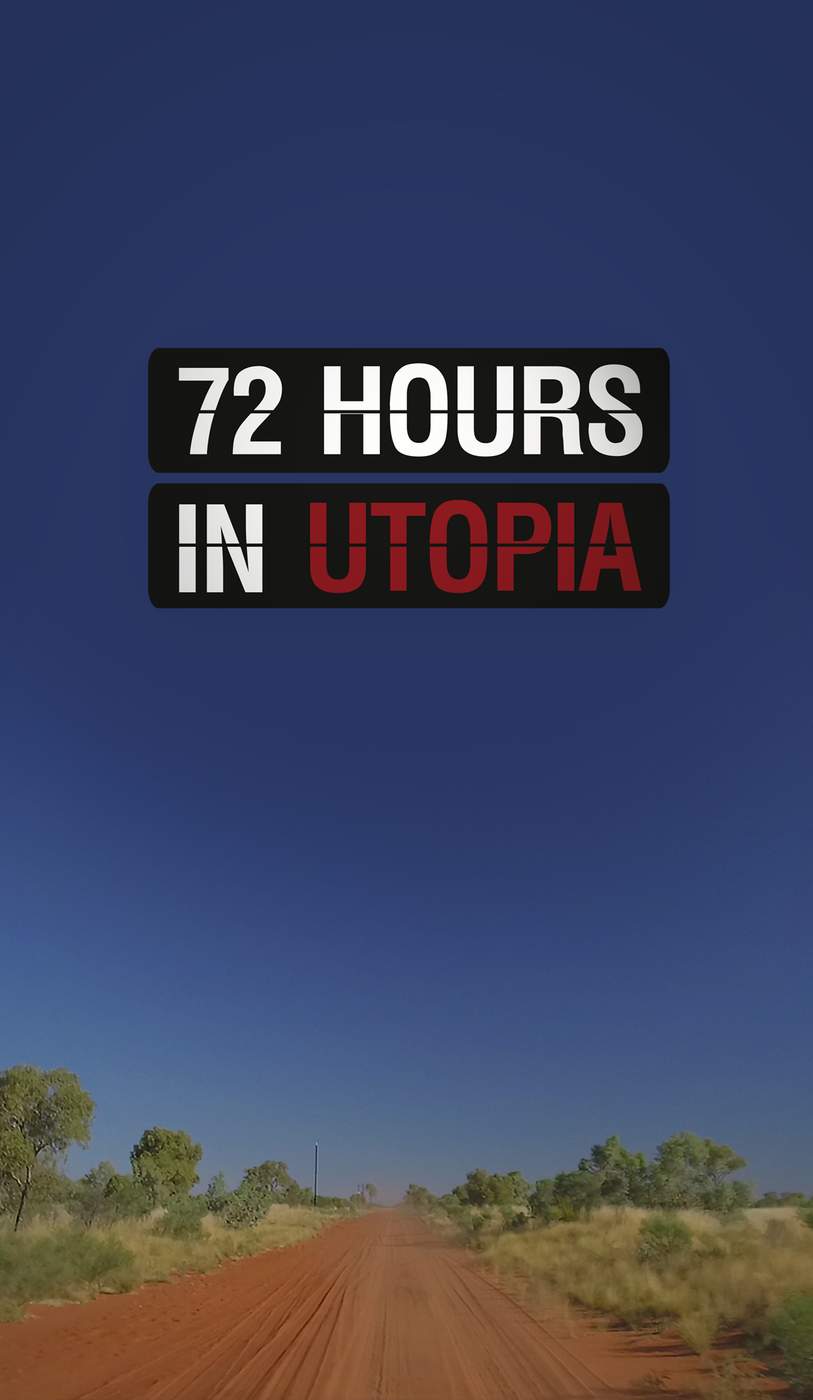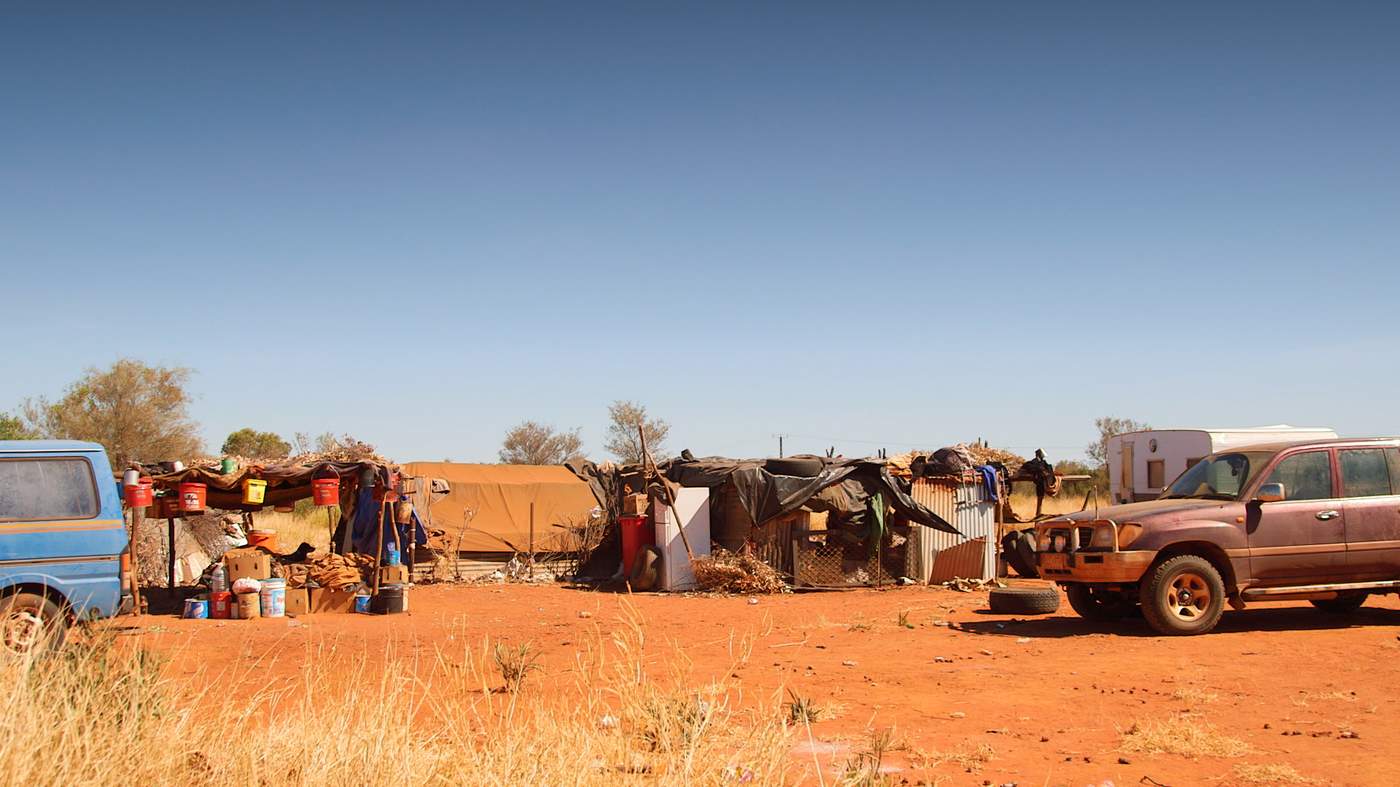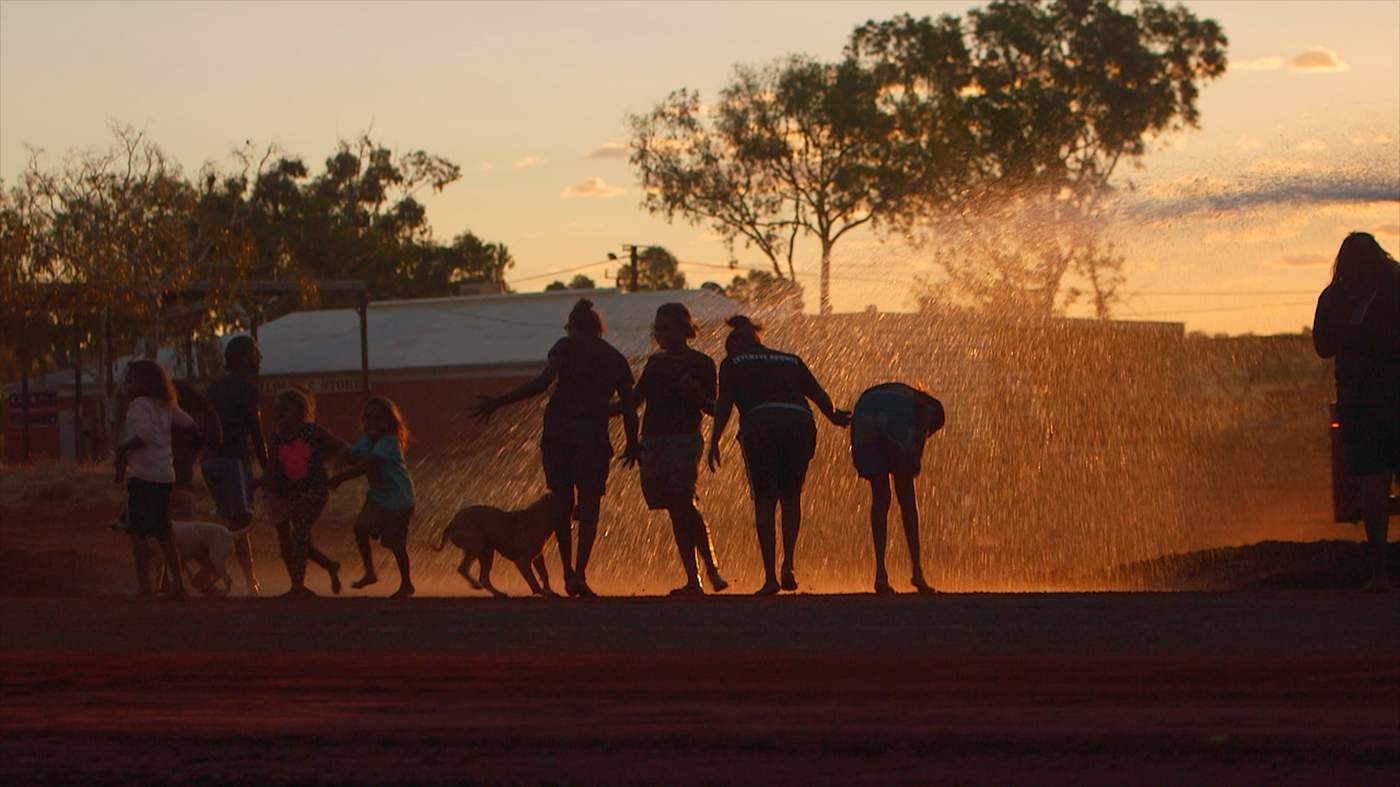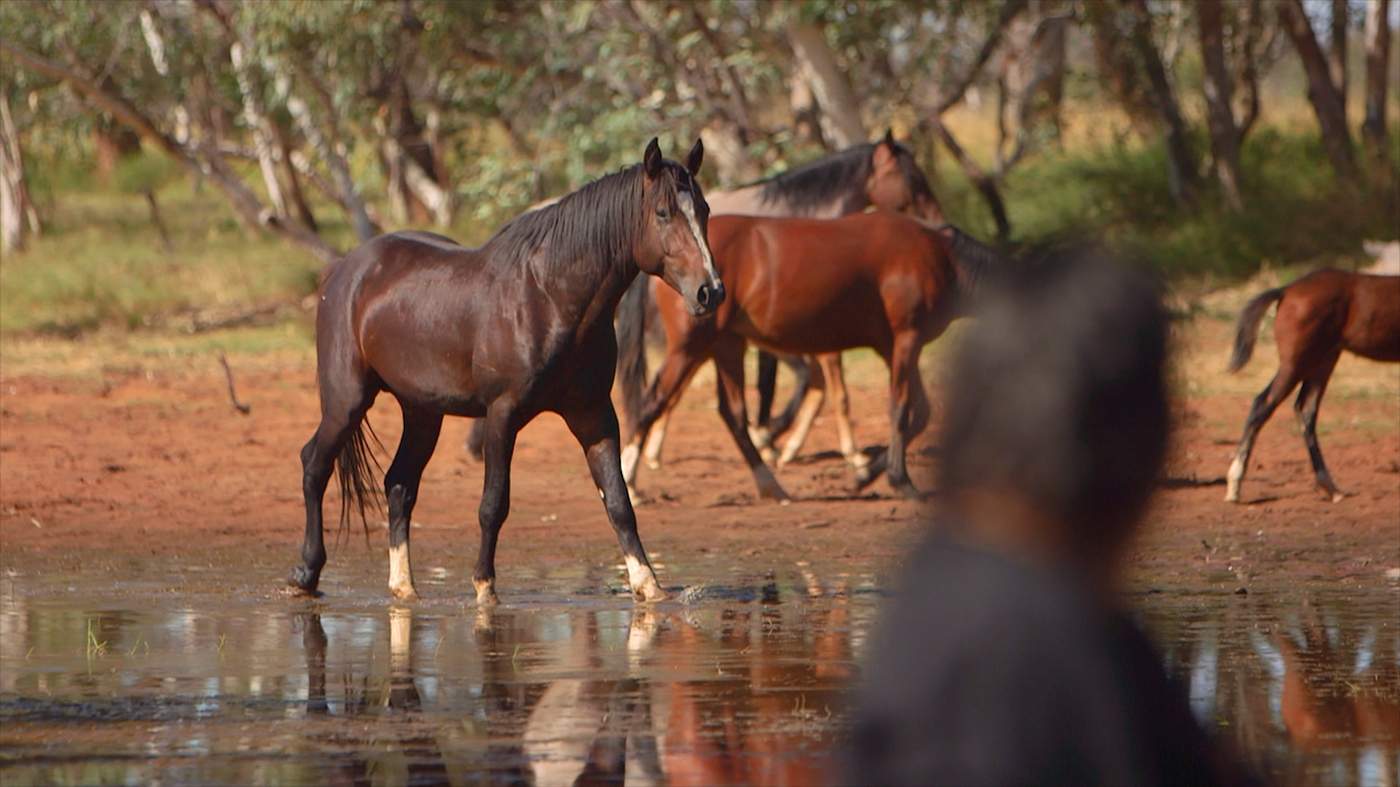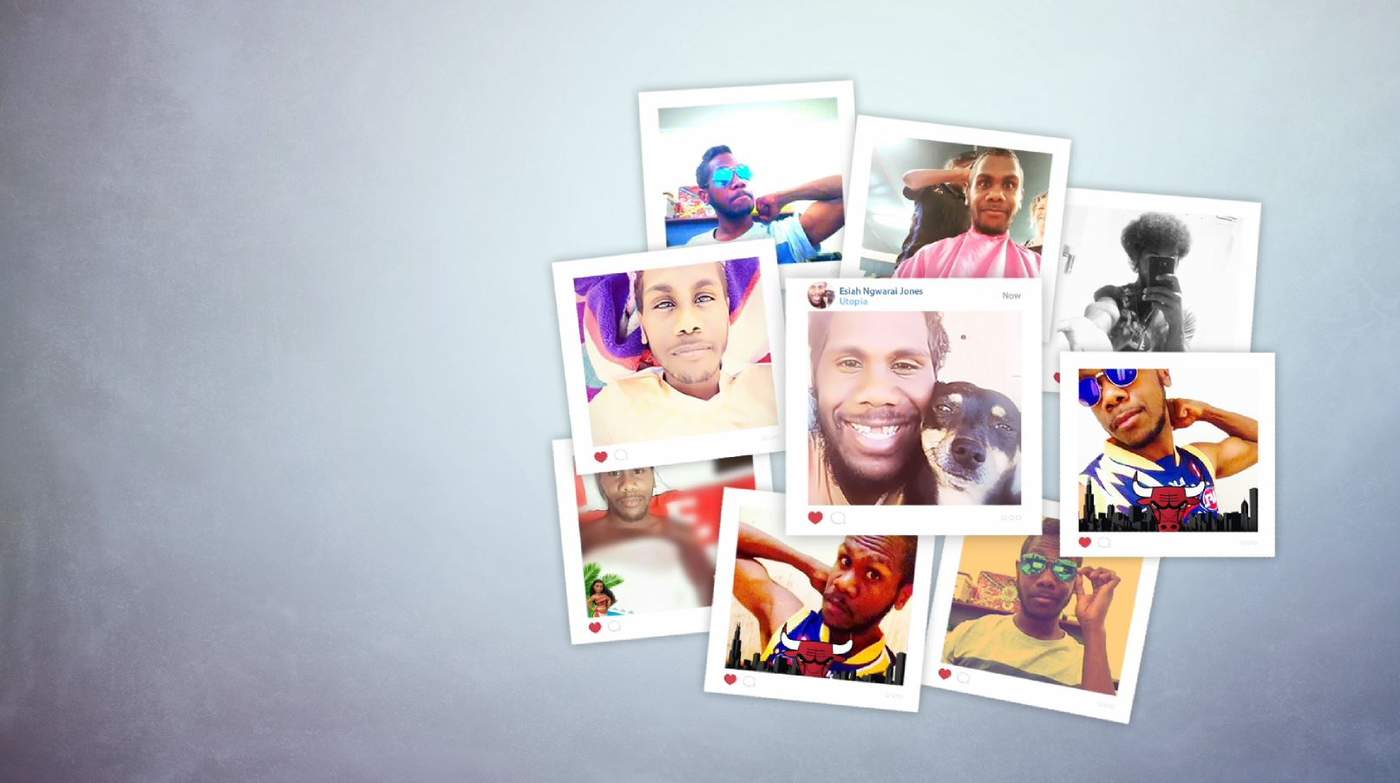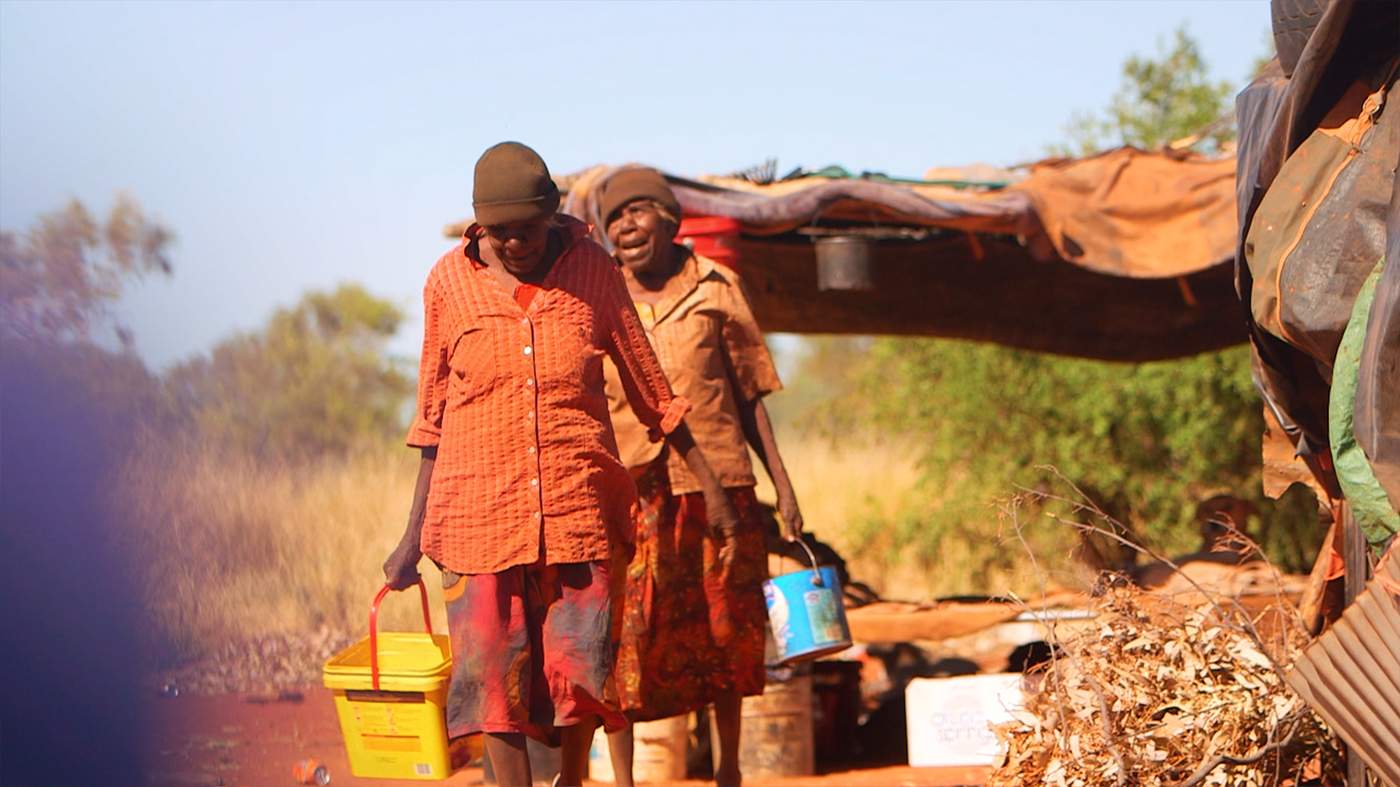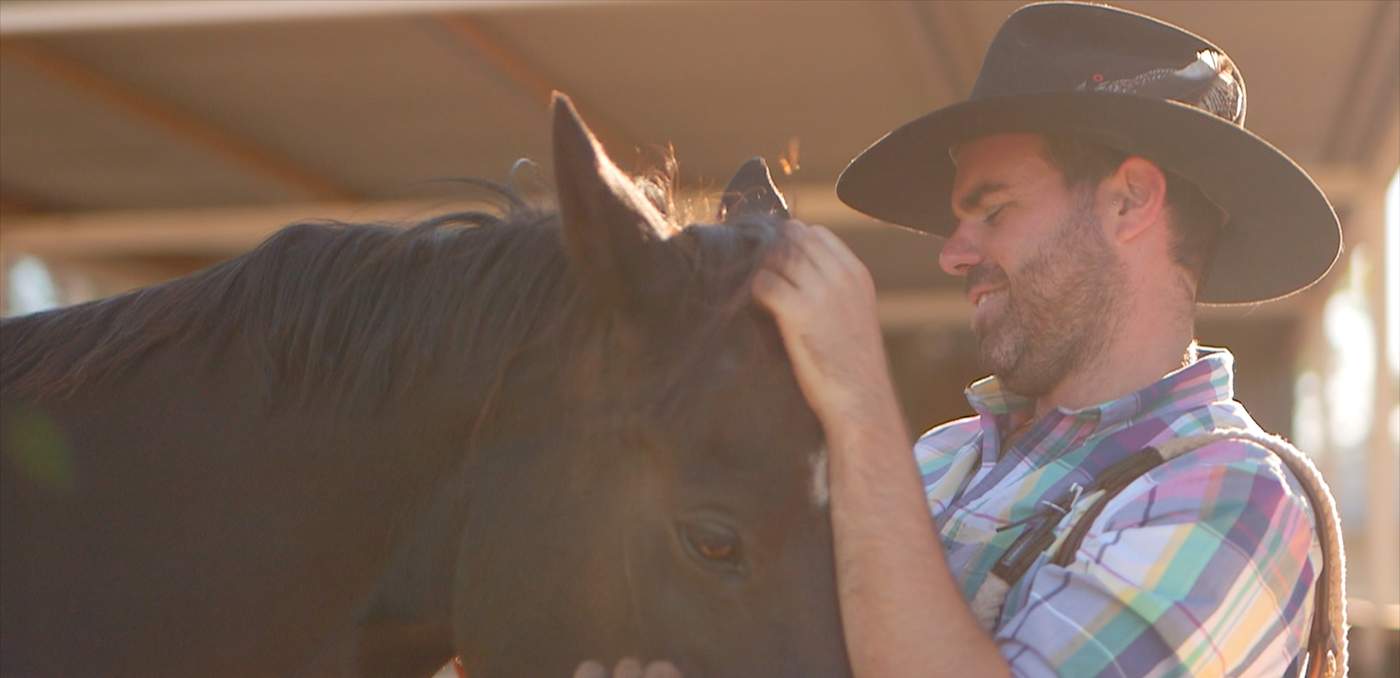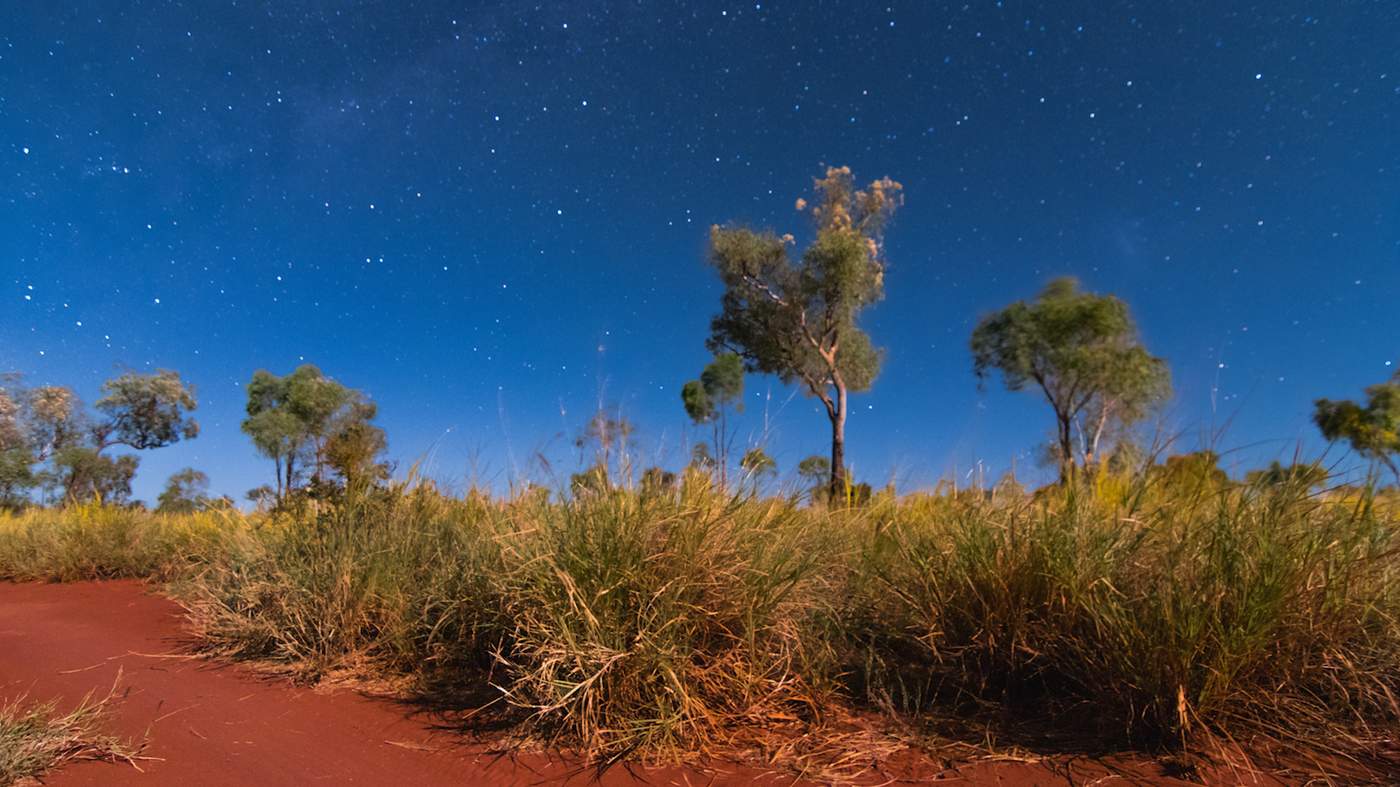Hundreds of kilometres deep into the sacred heart of the central Australian desert is a hidden world: Utopia.
But this cluster of outstations is utopian by name only. Nowhere is the struggle to close the gap between Indigenous and non-Indigenous communities more urgent.
Attempts to centralise the region’s 16 outstations into a single hub town have been knocked down by traditional elders who refuse to leave their ancestral homelands.
More than six months ago, the NT Government promised a $28 million overhaul of housing and infrastructure. Development is expected to take years. But time is ticking in Utopia.
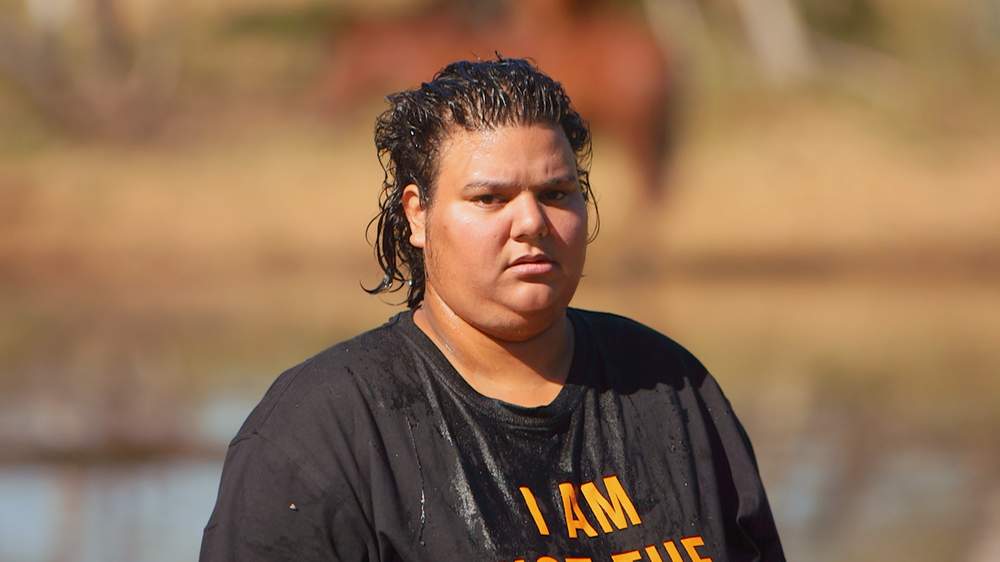
Amelia Kunoth Monk
Writ large in orange letters across Amelia Kunoth Monk’s black T-shirt is a declaration: “I am not the problem.”
Utopia’s problem, as she sees it, is neglect. And by the Northern Territory Chief Minister’s own admission, this is “one of the most underserviced Aboriginal communities in the country.”
But in the same breath that Amelia describes her dessert homeland as “a third world country in a first world country”, she talks about its disarming beauty – and, as if on queue, a herd of brumbies gather in the shade of the eucalypts by the edge of the waterhole.
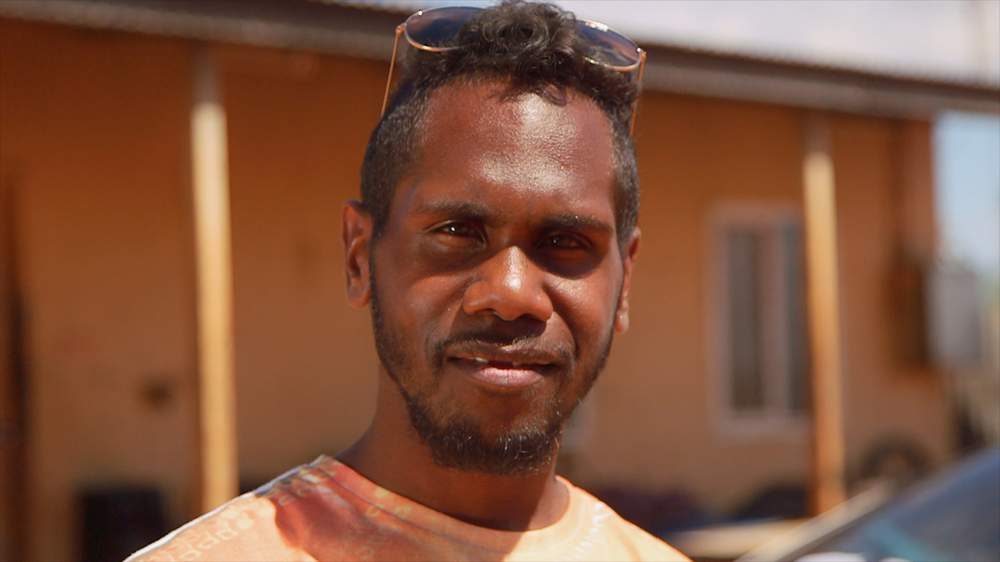
Esiah Ngwarai Jones
Walking along the road, littered with the bodies of animals and cars, 19-year-old Esiah, stoops down to check his reflection in the side-view mirror of an upturned Commadore. Today he’s rocking a pair of aviators.
Esiah works as a teacher’s aide to provide for his family of 20. If he has money left over he spends it shopping online – and when the clothes arrive, he takes selfies then posts them to Instagram.
“I hunt for kangaroos and goanna, echidna and unga, which is emu.” In one hand is a spear (he whittles all of his own tools) and in his other hand is a smartphone. He uses a rifle for ‘roos.
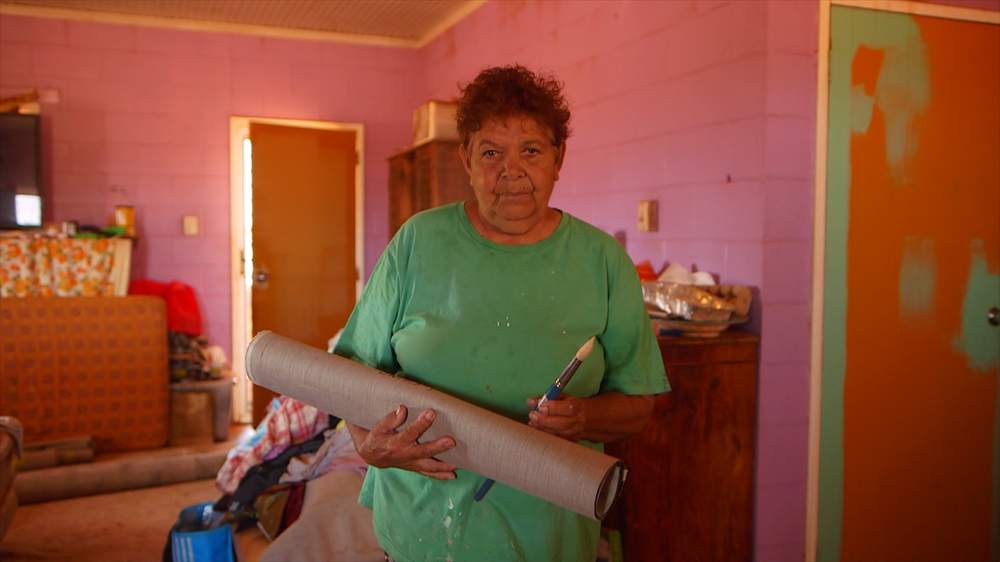
Barbara Weir
“I was taken from Utopia when I was 10. I’m Stolen Generation.
“We were filling up billycans with water when the Land Rover come up. I tried to run, but he chased me and caught me.
“I was sent to a farm in Victoria. It was hard: me going to live with white people. A lot of things still hurt from that time when I was taken away.”
Painting and gathering traditional bush tucker
help Barbara heal.
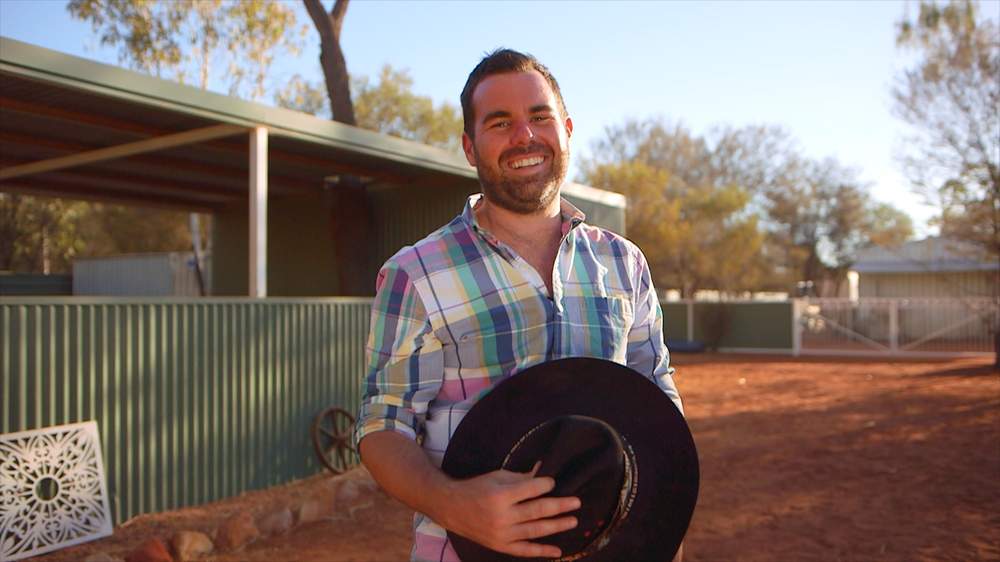
Chansey Paech
Chansey Paech is one of only six Indigenous politicians who make up 25 members of the NT Government. Utopia falls under his electorate.
“Too often, decisions are made in Darwin or in Canberra and they’re not reflective of what people want out on the land. [Traditional owners] need to be involved in actually doing the work.
“It’s hard for non-indigenous Australians to understand when we talk about connection to country. Some people can relate to it when you get homesick but you have to magnify it 100 times, that's the feeling of country.”
